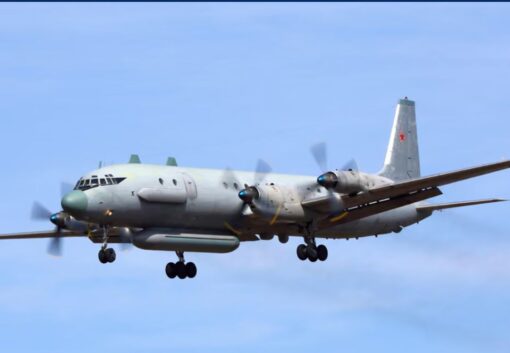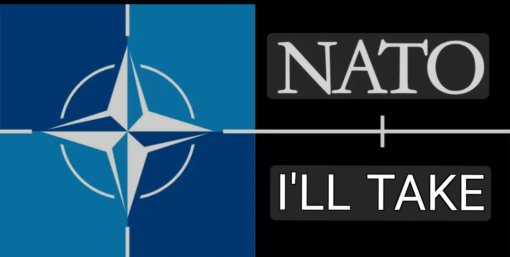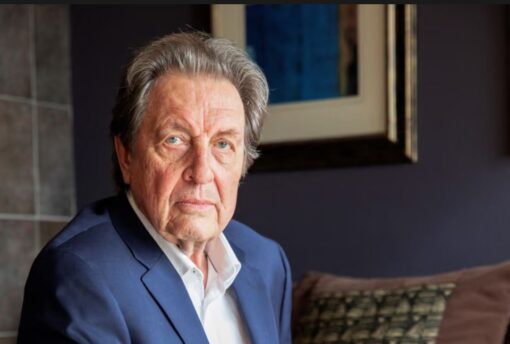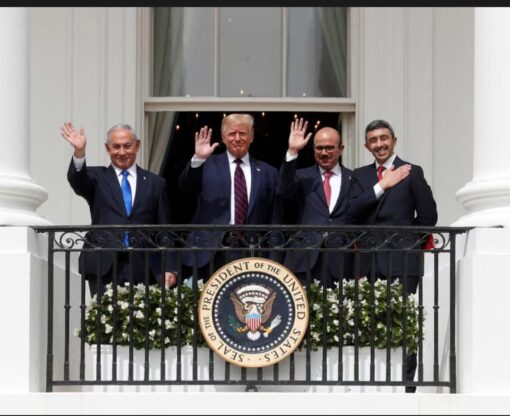NATO has issued a stern warning to Moscow after a series of reported airspace violations, saying the alliance will defend itself and deter threats if Russia continues to challenge its borders.
Officials confirmed that military aircraft from member states were scrambled several times in recent days to intercept Russian planes that came dangerously close to NATO territory.
The incidents have triggered renewed fears of escalation at a time when tensions between Russia and the West are already high due to the ongoing war in Ukraine.

“NATO warns Russia that we take the integrity of our airspace seriously and will not hesitate to respond if necessary,” Secretary General Jens Stoltenberg said in Brussels.
“These violations are unacceptable, they are reckless, and they increase the risk of miscalculation.” His words reflected the unease among alliance members, many of whom share borders with Russia or are within range of its military aircraft and missiles.
Officials said the most recent incident occurred near the Baltic states, where Russian planes flew without transponders, failing to identify themselves to civilian air traffic control.
Such actions are considered especially dangerous because they put commercial airliners at risk. A NATO air commander described the situation as “a constant test of our readiness,” noting that the alliance has recorded hundreds of interceptions over the past year.
“Every time we scramble jets, it is because NATO warns Russia that these actions are provocative and dangerous,” the commander said.
The Kremlin has denied deliberate violations, insisting that Russian aircraft operate in international airspace.
However, European governments argue that the pattern is clear and deliberate, designed to intimidate neighbors and probe NATO defenses. Lithuania’s defense minister stated, “this is not accidental.
Russia is testing our resolve, and NATO must show unity. The message must be clear: we will defend every inch of our airspace.” His remarks were echoed by Polish officials, who called the incursions a “serious threat to European security.”
The warning from Brussels comes against the backdrop of Russia’s continued war in Ukraine, where Western allies have stepped up military assistance to Kyiv.
Analysts suggest Moscow’s behavior in NATO airspace may be linked to broader geopolitical tensions, with the Kremlin seeking to remind the West of its military reach.
A European security expert explained, “These flights are not just about airspace. They are about signaling power, about testing NATO’s patience, and about creating uncertainty.”
For ordinary citizens, the warnings are a reminder of how fragile the security situation has become. In Estonia, residents near an airbase reported hearing fighter jets scrambling in the middle of the night.
“We woke up to the sound of planes, and everyone immediately thought of the war in Ukraine,” one local resident said. “It makes us feel vulnerable, but also reassured that NATO is protecting us.”
The United States has strongly backed NATO’s position, with Pentagon officials emphasizing that defending allied airspace is a core mission of the alliance.
“Russia must understand that provocations have consequences,” a US defense spokesperson said. “We will not allow repeated violations to go unanswered.”
Washington has also confirmed that additional surveillance and deterrence measures are being considered, including deploying more advanced radar and fighter aircraft in Eastern Europe.
NATO allies have consistently highlighted the importance of unity in the face of Russian provocations. Stoltenberg reiterated that any attack on NATO territory would trigger Article 5 of the alliance’s treaty, obligating all members to respond collectively.
“NATO warns Russia that we are united, we are vigilant, and we are prepared to act,” he declared. His words drew applause in some European capitals but also underscored the risks of miscalculation. Critics fear that a mid-air collision or misinterpreted maneuver could spark a crisis.
Civil aviation groups have raised concerns that unannounced Russian flights put commercial passengers at risk. Air traffic controllers in northern Europe have had to redirect flights on several occasions due to unidentified military aircraft entering busy corridors.
A spokesperson for the International Air Transport Association said, “Airspace safety must be non-negotiable. Flying without transponders is reckless. Governments must take urgent steps to reduce this danger.”
The latest incidents are part of a larger pattern stretching back several years. Since the annexation of Crimea in 2014, NATO has reported a sharp increase in Russian aerial activity near its borders.
The situation has intensified since the full-scale invasion of Ukraine in 2022. A Latvian security official said, “Every week, our radars pick up Russian aircraft probing the edge of NATO airspace.
This is hybrid warfare in the skies.” He added that without NATO’s collective defense posture, small states like Latvia would be overwhelmed.
The Kremlin has brushed aside Western concerns, accusing NATO of exaggerating the risks and using the incidents as a pretext for militarization.
A Russian defense ministry statement said, “Our flights are conducted in full compliance with international law. It is NATO that constantly encroaches on Russian borders.”

However, European officials reject that claim, pointing out that Russian planes frequently ignore air traffic safety rules. “We know propaganda when we hear it,” a Finnish official said. “The facts are clear: NATO warns Russia because its aircraft are endangering civilian lives.”
The debate has spilled over into political discourse within NATO countries, with opposition parties in some nations questioning whether stronger confrontation risks dragging Europe into a wider war.
In Germany, one parliamentarian cautioned, “We must be firm but also careful not to escalate unnecessarily.” Yet governments in the Baltic states and Poland argue that deterrence is the only language Moscow understands. “If NATO does not act decisively, Russia will keep pushing the boundaries,” said Estonia’s prime minister.
For now, the alliance is relying on a mix of diplomatic pressure and military readiness. Interceptions are becoming routine, but officials acknowledge that routine does not mean safe.
“All it takes is one mistake,” a NATO pilot said, describing a recent interception where his aircraft came within visual range of a Russian fighter. “We lock eyes across the cockpit, and you realize how quickly things could spiral.”
The warning issued by NATO is intended not just for Moscow but for the global audience watching Europe’s security order being tested.
The alliance hopes that by speaking clearly, it can reduce the risk of escalation while demonstrating strength. Yet the reality remains tense, with Russian planes still flying close to allied airspace and NATO aircraft on constant alert.
As Stoltenberg concluded, “The message is simple. NATO warns Russia to stop these violations. We are committed to defending our allies, deterring threats, and maintaining peace. But let there be no doubt: if challenged, NATO will respond.”


